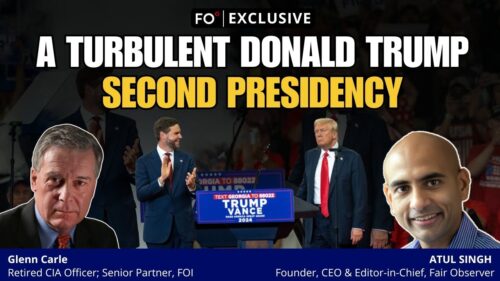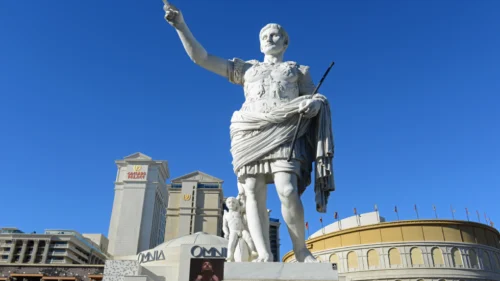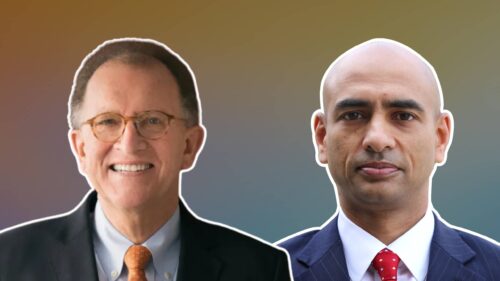Just days after entering office, US President Donald Trump swiftly revoked 78 of his predecessor Joe Biden’s executive actions. These include executive orders, which carry the greatest weight, along with lesser memoranda and proclamations. While executive orders carry the force of law and are difficult to overturn, memoranda and proclamations are harder to track and enforce.
By January 28, Trump signed 37 executive orders, with titles like “Unleashing American Energy” and “Putting America First in International Environmental Agreements,” effectively pulling the US out of the Paris Climate Accord. These actions signal a return to policies like “drill, baby, drill,” inspired by Republican vice presidential candidate Sarah Palin. In 2008, she campaigned on a platform promoting petroleum and natural gas exploitation. They also mark a return to policies that reassert unilateral American sovereignty at the cost of international collaboration.
Over the decades, key judicial decisions have empowered conservatives. Chief Justice John Roberts has strengthened and rationalized the conservative view, which has altered American democratic institutions. One can argue that the Supreme Court’s ruling in the case of Bush v. Gore (2000) essentially handed George W. Bush an election victory, ringing in neoconservative rule.
Additionally, Trump’s current agenda echoes Republican Grover Norquist’s 1980s campaign to shrink the federal government by half. Norquist champions the unitary executive theory, in which the president must have untrammeled power, avoiding the logjam that checks and balances cause today. Unlike the 18th century, the US is now a superpower, and presidents must have the authority to act speedily and effectively in the national interest.
We can trace Norquist’s ideas to philosophers like John Hobbes, who advocated for strong executive authority to maintain order in society. This Hobbesian philosophy is manifesting again in Trump’s presidency at a time when bureaucratic inefficiencies and regulatory capture have eroded public trust in institutions.
A shift toward a unitary executive
The concept of a unitary executive goes back to before Norquist. Per this theory, the president has the power to make decisions and enforce them without interference from the legislative or judicial branches of government, and has become a driving force in US governance. This idea is credited to German legal thinker Carl Schmitt, Adolf Hitler’s personal lawyer who argued for centralizing power.
Neoconservatives have embraced the unitary executive. They believe the federal government has become intrusive and inefficient, and no longer acts as the Founding Fathers intended. They reject decentralization and champion a streamlined government. Trump’s aggressive use of executive power fits within this larger framework.
Trump is changing the very nature of American democracy. Even if his specific goals fail — many won’t — his actions have significantly altered the political and societal landscape. Trump has reshaped the discourse, expectations and structure of the US government, shifting it toward a more authoritarian model. Public support for a strong, decisive leader bolsters this move. Polls show that over 40% of the American population does not support democratic processes, and greatly favors strong leadership.
Over the last centuries, during periods of democratic paralysis, decisive leaders have often risen to combat challenges. Wartime and economic crises are two examples. The US could be experiencing one of those cyclical phases now, in which Trump steps in and shakes things up. He may face backlash for his policies, leading the country back to a more democratic way of governance. Many overdue reforms could finally come to fruition as well, like addressing gerrymandering, campaign finance and reconsidering the extremely short two-year terms in the House of Representatives.
Trump’s policies often clash with established norms, particularly on immigration and birthright citizenship. Some see this as a threat to the country’s cultural identity. These policies could change the US’s interpretation of citizenship. They will also change the essence of America.
The strong do what they can
A crucial aspect of Trump’s agenda is a conservative push for a smaller, more autocratic government that prioritizes simplicity and reduced interference in citizens’ lives. However, the policies that follow often lead to unintended contradictory consequences. For instance, tariffs increase the value of the dollar, and curbs in immigration create labor shortages. Politically, though, they work, creating a dynamic where dissatisfaction is directed at the government, which reinforces support for conservative figures as potential saviors.
Trump’s push for greater executive power is a constitutional crisis in the making. If his administration enforces policies using illegal methods, such as military action at the border, it could lead to a breakdown of legal systems. Violent clashes could break out with other branches of government over legal authority, triggering a constitutional crisis.
In terms of foreign affairs, Trump’s unilateral approach reflects a shift toward US isolationism and mercantilism. His policies suggest a return to a more imperial, 19th-century model of international relations, marked by power-driven deals and disregard for legal or ethical obligations. Out goes the rules-based order, in comes the sphere-of-influence style of international relations where power and the perception of power alone is key.
In the words of the ancient Greek historian Thucydides, “The strong do what they can and the weak suffer what they must.” Trump’s philosophy, and especially his desire to acquire Greenland, Canada and Panama, mirrors Thucydides’s thesis.
[Lee Thompson-Kolar edited this piece.]
The views expressed in this article/video are the author’s own and do not necessarily reflect Fair Observer’s editorial policy.











































Comment